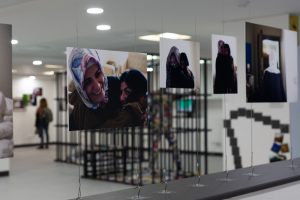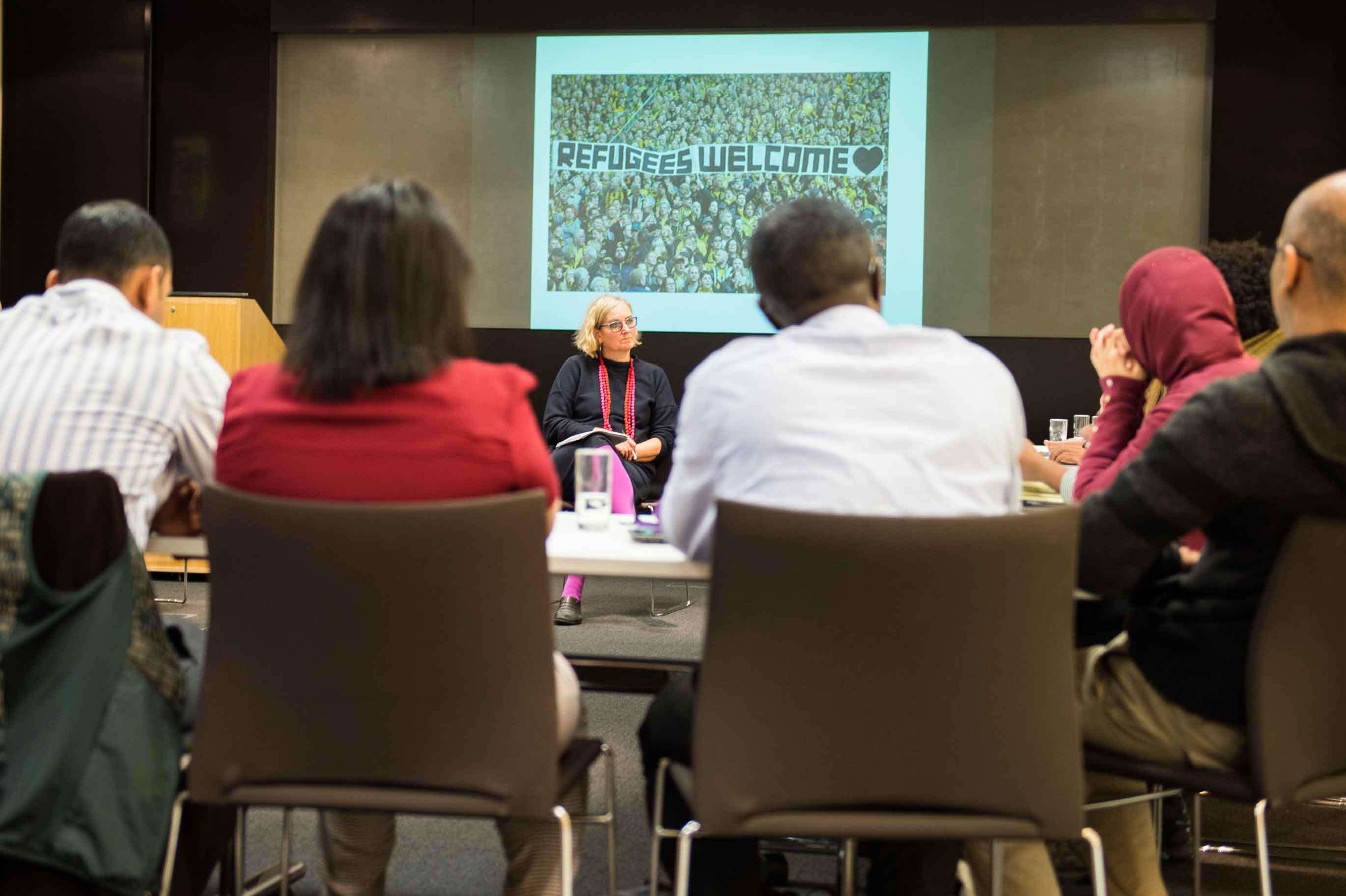The next cohort of the Refugee Journalism Project has been selected and we look forward to being able to start our programme in the next few months. But with the entire world slowing down at this time, it is a great moment to reflect on our work in 2018 and 19.
In 2018, we started with 31 participants. Almost all of them had some previous journalistic experience, but very few had experience of journalism in the UK. They all shared a story of displacement, suppression and even endangerment in their home countries – and a deep rooted motivation to continue and develop their work here in the UK.
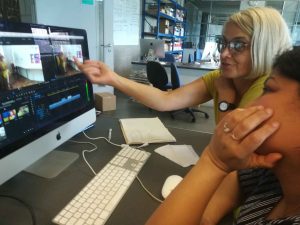
Support from inside and out
To support them, the Refugee Journalism Project, supported by London College of Communication, the Refugee Council University of Derby, Guardian Foundation, Centre for Investigative Journalism and Google News Initiative delivered a programme of 57 workshops. Topics ranged from News Writing and Podcasting to Employability Skills and Emotional Resilience.
In addition, participants could apply to external conferences and classes held by the likes of the BBC. Some of our participants also gained work experience and internships with the Thomson Reuters, Foundation the Daily Mirror and the Index of Press Censorship amongst many other organisations.
“I am so grateful for what [the RJP participants] have taught me about resilience, about living and working in the face of hostility” – Naomi Larsson, Project Mentor
But the core pillar of our project was the close contact between our participants and established media professionals. Alongside plenty of networking opportunities that allowed them to pitch, get advice and make themselves seen, our participants had access to one-on-one mentoring. By staying in close contact, mentors and mentees gained invaluable insights into each other’s perspectives and lives.
Broadening perspectives: our mentoring programme
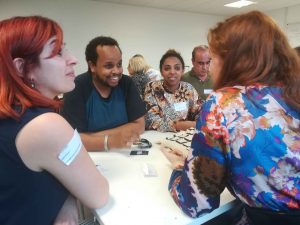
Whilst the project participants could get to know more about the journalistic industry in the UK, the mentors also broadened their perspectives and could reflect on previous worldview and perceptions: “I am so grateful for what [the RJP participants] have taught me about resilience, about living and working in the face of hostility, about the daily experiences of refugees and asylum seekers in this country […]”, said Naomi Larsson, freelance journalist and one of our Project Mentors.
During the year, our participants were able to pitch and publish in the UK – for publications such as The Guardian, who made use of our participants’ unique skillsets for their contribution to 2019 Refugee Week. Earning their first bylines lead to some of our alumni to go on to be commissioned for paid freelance work and one was also offered a scholarship to a graduate course.
“The workshops became more of a conversation than a lecture, infused with respect, enthusiasm and warmth” – Emma Jones, The Guardian Foundation
The great abilities of our participants also provided the opportunity for our partners to critically reflect on issues surrounding asylum, human rights and international affairs:
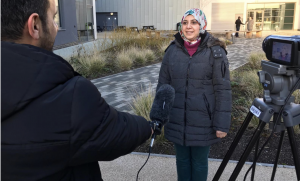
“I was always interested in hearing [the participants’] perspectives and the issues they brought up. It made those of us who work in the West confront some of our assumptions [..]. The workshops became more of a conversation than a lecture, infused with respect, enthusiasm and warmth.” Emma Jones, The Guardian Foundation.
Next to the media, the participant’s unique expertise was also requested by policymakers: A small of group of participants were invited to contribute to a discussion at the House of Commons – an enriching and unique opportunity for the panel who were able to benefit from first-hand experiences on the debated topic of improving refugees’ integration to their host communities.
To wrap up our project and celebrate the dedication and work our participants, the project coordinators and our partner organisations put into the project, we hosted our “Liminality” event in October 2019 at London College of Communication.
Celebrating the launch of 31 careers in the media
The event, an immersive mix of panel discussions, exhibited artwork and enriching personal connections, was a welcome opportunity to look back at our participants’ journeys: All of them had, in their self-assessment, gained substantial knowledge and expertise in journalism.
Many had published work and were able to continue the important work that had led them to flee their home countries. They had gained a high-profile professional network in a new industry and became valuable assets for the UK media landscape and were widely recognised by the industry for their unique mix of talent, knowledge and ambition.
“I was so very impressed with the calibre of the participants, their enthusiasm, their hunger and desire to make space for themselves in their host country and contribute their knowledge and expertise”, said Liliane Landor, Foreign News Editor at Channel 4 News.
But most importantly, a group of former strangers had become a professional and friendly network within themselves. With wide-spread industry contacts, far developed skills and newly gained confidence, we are proud to look at our participants’ development and are sure that we will see plenty of their work in the future.
